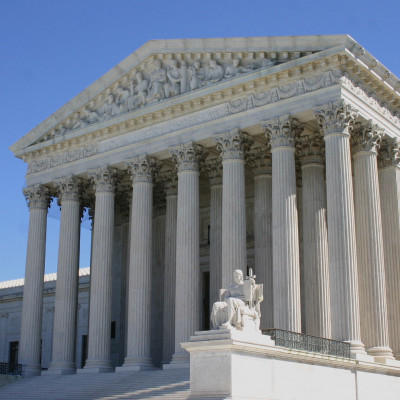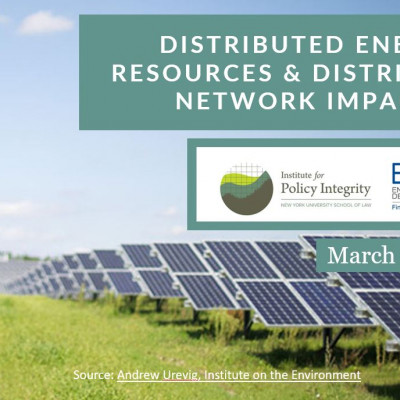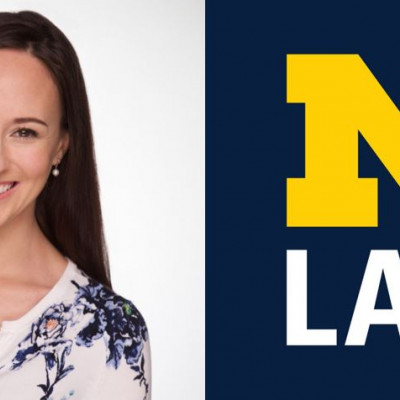February 28, 2022
February 2022 at Policy Integrity
- SCOTUS Reviews EPA Climate Authority
- What Does the Louisiana SCC Case Mean for Agency Climate Action?
- Report: A New Approach to Pipeline Approval
- Webinar: Distributed Energy Resources and Distribution Network Impacts
- Staff Spotlight
- More From This Month
-

SCOTUS Reviews EPA Climate Authority
This month, the Supreme Court heard oral argument on West Virginia vs. EPA, a blockbuster climate case challenging the scope of the Environmental Protection Agency’s authority to regulate greenhouse gas emissions from existing power plants. Richard Revesz submitted an amicus brief for the case, and after the argument he highlighted some key takeaways. He explained why the case should be dismissed in a recent Bloomberg Law op-ed, and told the Washington Post that “this court [was] being extraordinarily activist” by taking on the case. Revesz further addressed these issues on the Drilled podcast.
Revesz also challenged the merits of the case, particularly the misapplication of the major questions doctrine. “Just because the opponents are particularly shrill in their objection doesn’t change the fact that this regulation is no different than hundreds of regulations that the agencies have produced since the New Deal — just as Congress intended them to do,” Revesz said to the New York Times. For more on the problems with applying the major questions doctrine to this case, see research scholar Dena Adler’s blog post. In a second post, Adler noted that despite West Virginia’s claims to the contrary, EPA has long regulated air quality using beyond-the-fenceline tools such as emissions trading and generation shifting.
-

What Does the Louisiana SCC Case Mean for Agency Climate Action?
A Louisiana judge’s order for agencies to stop using the government’s social cost of greenhouse gas estimates has raised serious questions for the Biden administration’s climate agenda. Max Sarinsky called the injunction on agency science “legally incoherent,” and Richard Revesz told the Washington Post, “It’s like saying, ‘I’m sorry, the executive branch cannot study whether something is a carcinogen.’”
Although the decision is being appealed, it has delayed agencies that were using the damage metrics in key decisions, from plans to restrict methane emissions to grants for transit projects. The administration has also suspended new oil and gas leasing, given the need for emissions analysis. As Sarinsky told The Hill, the ruling places agencies in a “‘damned if we do, damned if we don’t situation” because “they’re often under legal requirements to take certain actions ... but this injunction is prohibiting them from sufficiently analyzing the climate impacts of those actions.” In the meantime, one possible solution is for agencies to rely on unquantified benefits to justify decisions, Revesz noted.
-

Report: A New Approach to Pipeline Approval
For new pipelines to be built, the Federal Energy Regulatory Commission (FERC) must first determine that they are in the public interest. Historically, the agency has assessed this decision only by looking at whether developers could secure private contracts with gas shippers. In the process, as our new report lays out, FERC has long neglected crucial factors such as proposed projects’ climate impacts, their contribution to regional overbuild and higher gas transport charges for consumers, and their long-term financial viability in a decarbonizing economy.
In February, FERC incorporated many of the report’s recommendations as it set out a framework for approving pipelines that includes an improved consideration of climate change, environmental justice, and other factors. Attorney Sarah Ladin noted that the new framework could affect multiple pending projects and could streamline parts of the evaluation process.
-
Webinar: Distributed Energy Resources and Distribution Network Impacts
Are you curious to learn about the challenges and opportunities created by Distributed Energy Resources (DERs)? How policies can help or hinder outcomes? Whether there are ways to improve both adoption and functionality of DERs? Get your questions answered today at 2:00 pm ET in this conversation between leading research and policy experts. You can register for the webinar here.
This webinar is co-sponsored by Policy Integrity and the Environmental Defense Fund and is part of an ongoing series highlighting research funded by the Alfred P. Sloan Foundation in the electricity transmission and distribution space. Stay tuned for upcoming events!
-
Staff Spotlight
We are excited to announce that legal fellow Rachel Rothschild has accepted a tenure-track position at the University of Michigan Law School. Rothschild is the sixth Policy Integrity staff member to take a tenure-track academic position in the last five years, joining Caroline Cecot (George Mason University, law, 2017), Jeffrey Shrader (Columbia University, economics, 2018), Madison Condon (Boston University, law, 2020), Ana Varela Varela (University of Amsterdam, economics, 2021), and Valerie Stahl (San Diego State University, city planning, 2021).
-
More from February 2022
Richard Revesz weighed in on the significance of EPA’s proposal to restore the legal basis for landmark Obama-era limits on mercury and other hazardous pollutants from coal-fired power plants by reestablishing the “appropriate and necessary” determination for the Mercury and Air Toxics Standards (MATS). He commended the agency for reaching this decision by considering both direct and indirect of the rule, a longstanding analytic practice interrupted only under the Trump administration.
In response to the Occupational Safety and Health Administration’s (OSHA) request for input on addressing extreme heat risks faced by workers, legal fellow Bridget Pals co-authored a blog post with Environmental Defense Fund colleagues Jesse Hevia and Stephanie Jones summarizing our joint comments to the agency. The authors urge OSHA to design standards that account for the disproportionate impacts of extreme heat on marginalized communities and the increased heat risk that workers will face due to climate change.
Additionally, we submitted comments to:
- The Office of the Comptroller of the Currency on draft principles for climate-related financial risk management for large banks.
- EPA and the Army Corps of Engineers on their proposed definition of “Waters of the United States.”
- The National Oceanic and Atmospheric Administration Comments on its environmental analysis for the proposed Chumash Heritage National Marine Sanctuary.


